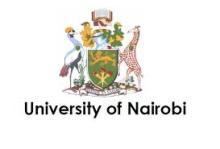Resource information
The relationship between land ownership and the sustainable use of natural resources is examined within the context of constitutional change in Africa. Using Kenya as an example, it is demonstrated that current constitutional arrangements put excessive emphasis on the protection of private property rights without requiring the corresponding duty of ecological stewardship. This has resulted in the failure of government policies and development practices to fully integrate environmental considerations into growth strategies. The linkages between governance and natural resource management are examined, and the relationship between land tenure and the management of soils, water, forests and wildlife is analysed. The strengths and weaknesses of current tenure systems are explored and alternative approaches are suggested. A governance scheme that takes into account environmental management should be a central part of the constitutional order. Traditional or customary land use practices already embody ecological principles which should be recognized by the law and reflected in constitutions. Options for constitutional reform are presented. These include the use of doctrines of public trust and customary use, and provisions which acknowledge the rights of nature, so that a balance is created between private property rights and public interest.


